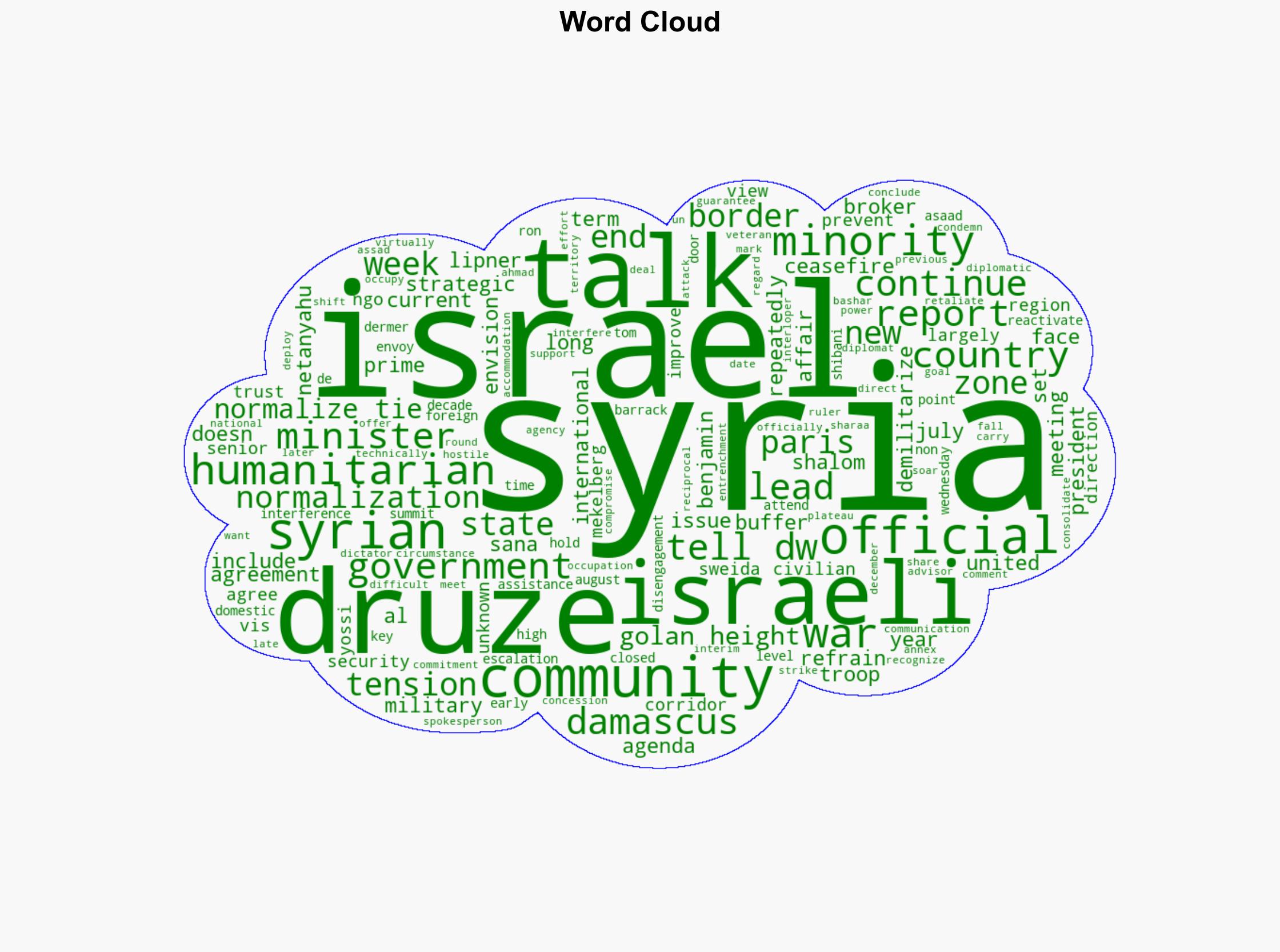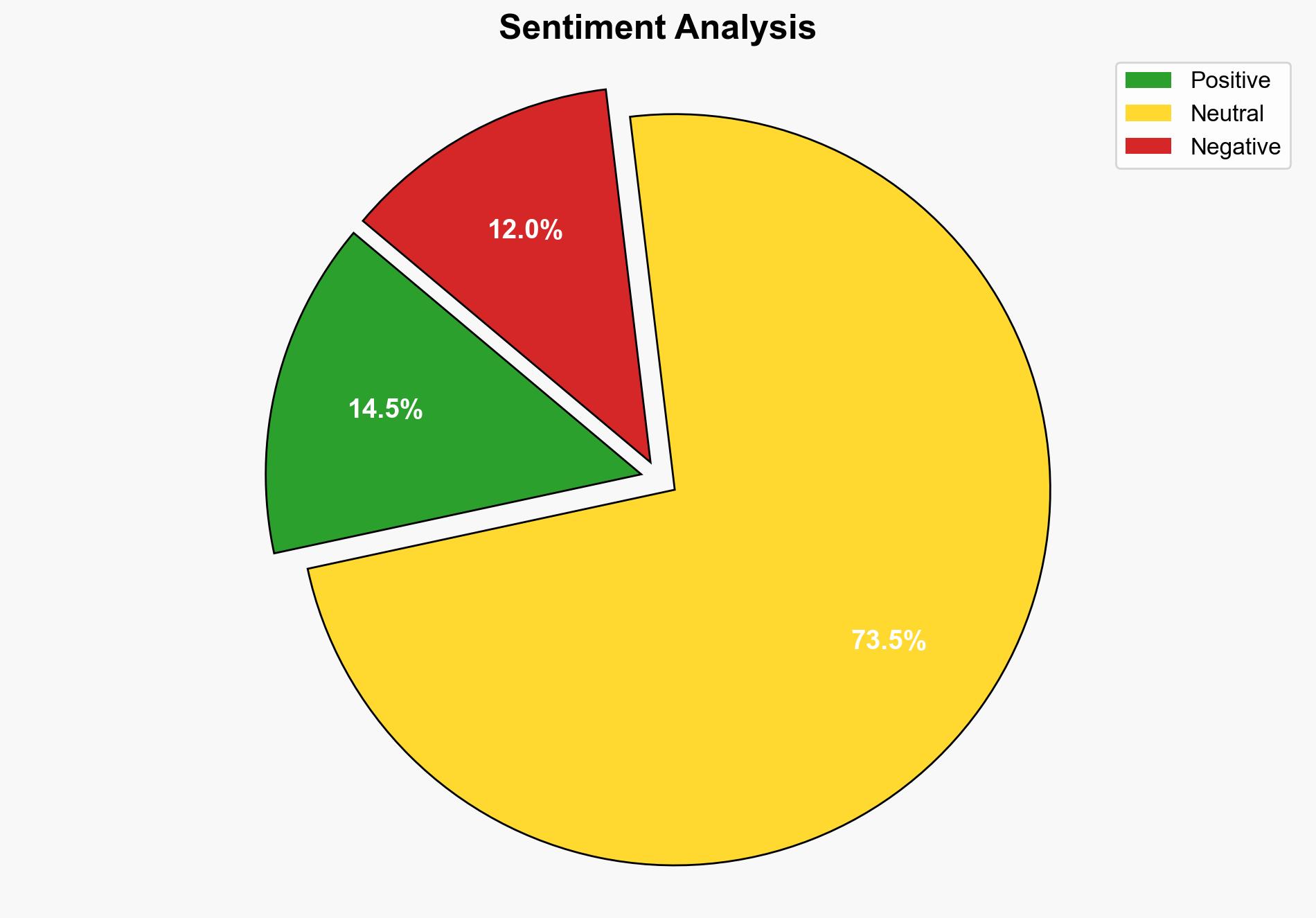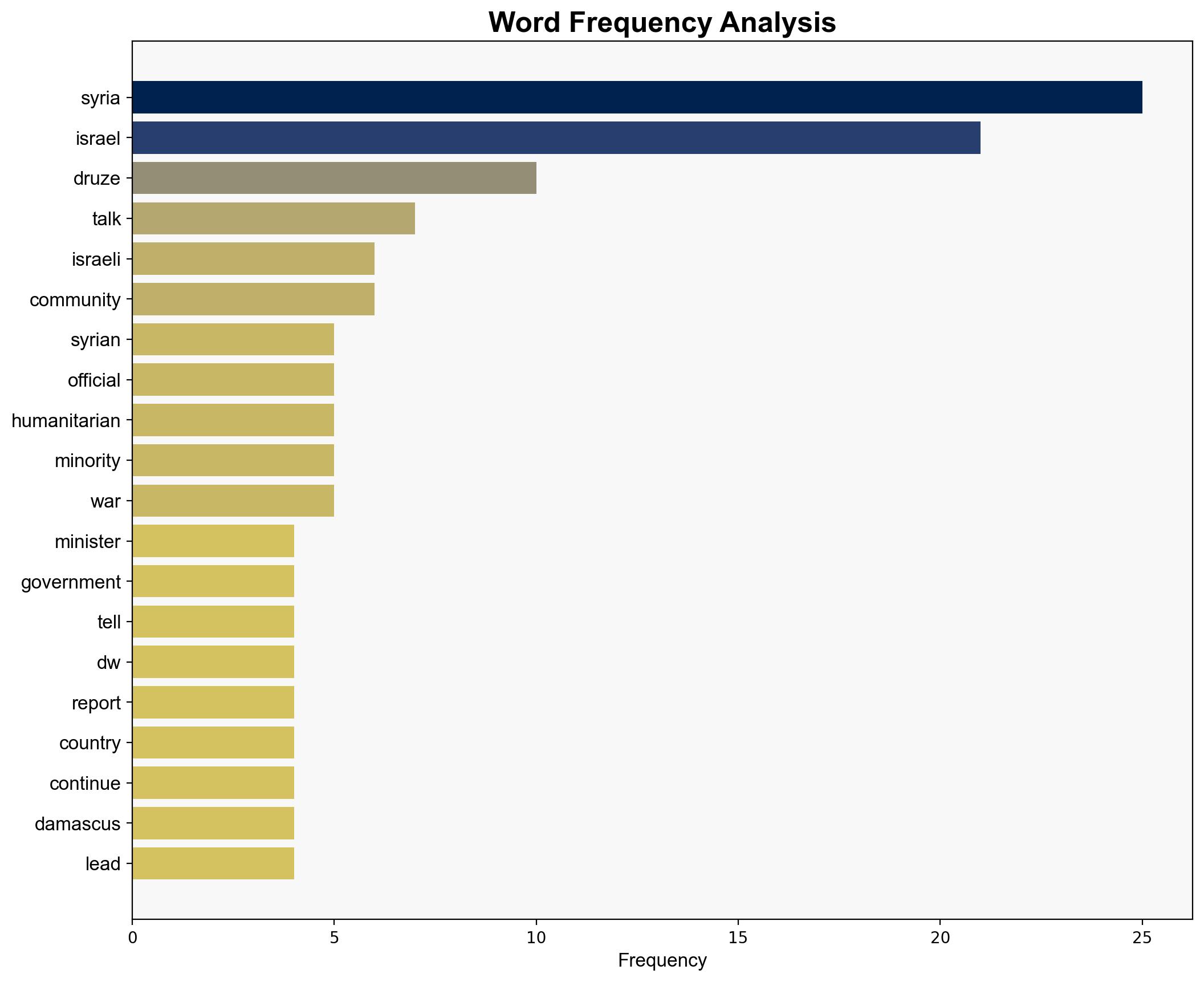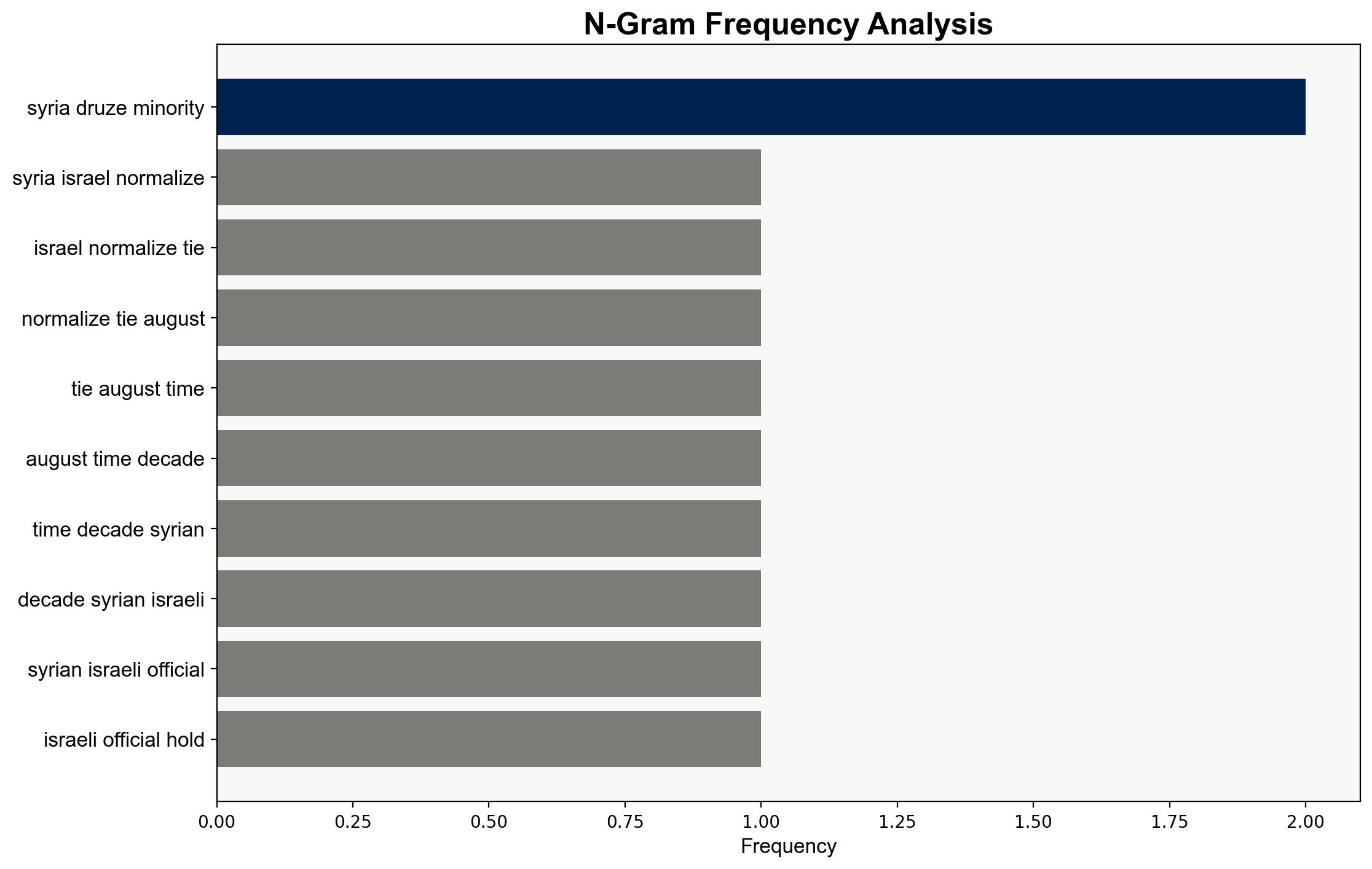Are Syria and Israel about to normalize ties – DW (English)
Published on: 2025-08-21
Intelligence Report: Are Syria and Israel about to normalize ties – DW (English)
1. BLUF (Bottom Line Up Front)
The most supported hypothesis is that Syria and Israel are cautiously exploring normalization of ties, driven by mutual security concerns and regional stability interests. Confidence level: Moderate. Recommended action includes monitoring ongoing diplomatic engagements and preparing for potential shifts in regional alliances.
2. Competing Hypotheses
Hypothesis 1: Syria and Israel are genuinely pursuing normalization of ties, facilitated by recent high-level talks in Paris. This is motivated by mutual interests in regional stability, security, and humanitarian concerns, particularly regarding the Druze minority.
Hypothesis 2: The talks are a strategic maneuver by both nations to gain international favor and leverage without genuine intent to normalize relations. The focus on humanitarian corridors and security might be a facade to placate international observers and manage domestic narratives.
Using the Analysis of Competing Hypotheses (ACH) 2.0, Hypothesis 1 is better supported due to the presence of direct talks and specific agendas like de-escalation and humanitarian aid, which indicate a structured approach to normalization. However, the lack of public statements from Israeli officials and skepticism from Syrian sources suggest caution.
3. Key Assumptions and Red Flags
Assumptions include the belief that both nations prioritize regional stability over historical animosities and that humanitarian concerns are genuine. Red flags involve the absence of official confirmation from Israel, potential bias in Syrian state media reports, and historical distrust between the nations. The possibility of deception exists if either party uses talks to buy time or distract from other agendas.
4. Implications and Strategic Risks
Normalization could alter regional power dynamics, potentially leading to shifts in alliances and economic partnerships. However, failure to achieve tangible progress might exacerbate tensions, especially if perceived as insincere. The humanitarian focus could mitigate some risks but might also be exploited for strategic gains. Cybersecurity and counter-terrorism efforts could be impacted by changes in bilateral relations.
5. Recommendations and Outlook
- Monitor diplomatic channels and media for developments in talks, focusing on official statements and actions.
- Engage with regional allies to assess potential shifts in alliances and prepare contingency plans.
- Scenario-based projections:
- Best Case: Successful normalization leads to enhanced regional stability and economic cooperation.
- Worst Case: Talks collapse, leading to increased tensions and potential conflict escalation.
- Most Likely: Incremental progress with periodic setbacks, requiring sustained diplomatic engagement.
6. Key Individuals and Entities
Ron Dermer, Asaad Al Shibani, Tom Barrack, Benjamin Netanyahu, Ahmad Al Sharaa, Shalom Lipner, Yossi Mekelberg.
7. Thematic Tags
national security threats, regional focus, diplomatic relations, humanitarian issues





